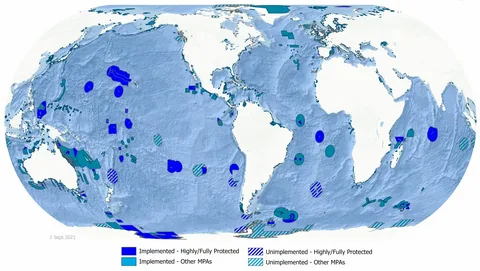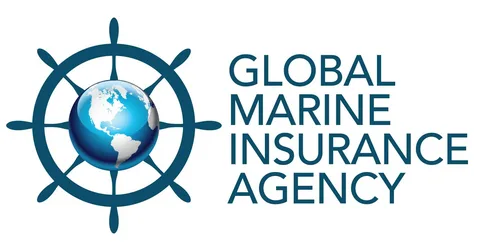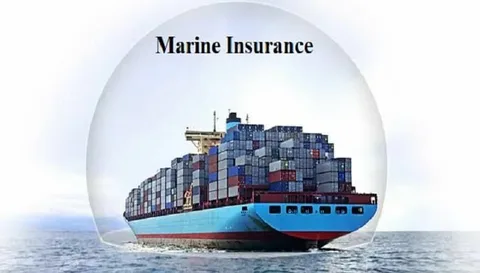Global Marine Insurance: Navigating the Waters of Protection
Introduction
Ahoy there! 🌊 Whether you’re a seasoned sailor or a landlubber dreaming of the high seas, understanding global marine insurance is crucial. This comprehensive guide will help you navigate the often murky waters of marine insurance, ensuring your vessel and cargo are protected against the unpredictable nature of the ocean. So, grab your life jacket and let’s dive in!

What is Marine Insurance?
Marine insurance is a type of coverage designed to protect ships, cargo, terminals, and any transport by which property is transferred, acquired, or held between points of origin and final destination. It’s one of the oldest forms of insurance, dating back to the times when merchants first took to the seas to trade goods.
Types of Marine Insurance
- Hull Insurance: This covers the vessel itself against damage or loss due to perils of the sea, fire, piracy, and other risks.
- Cargo Insurance: This protects the goods being transported. Whether you’re shipping electronics or exotic spices, cargo insurance ensures your items are covered.
- Liability Insurance: This covers the shipowner’s legal liabilities to third parties, such as damage to other ships or injury to passengers.
- Freight Insurance: This covers the loss of freight revenue if the goods are damaged or lost.
Why is Marine Insurance Important?
Imagine you’re shipping a container full of valuable electronics from China to the United States. Without marine insurance, any damage or loss during transit could result in significant financial loss. Marine insurance provides peace of mind, knowing that your investment is protected against unforeseen events.
Key Players in the Marine Insurance Industry
Several major companies dominate the global marine insurance market, including:
- Lloyd’s of London: Known for its extensive history and expertise in marine insurance.
- Allianz Global Corporate & Specialty: Offers comprehensive marine insurance solutions.
- Zurich Insurance Group: Provides a wide range of marine insurance products1.
Factors Affecting Marine Insurance Premiums
- Type of Cargo: High-value or hazardous goods typically attract higher premiums.
- Shipping Route: Routes with a higher risk of piracy or severe weather conditions may have higher premiums.
- Vessel Age and Condition: Older vessels or those in poor condition may incur higher premiums.
- Claims History: A history of frequent claims can lead to higher premiums.

How to Choose the Right Marine Insurance Policy
- Assess Your Needs: Determine what type of coverage you need based on your cargo, route, and other factors.
- Compare Policies: Look at different policies from various insurers to find the best coverage at the best price.
- Read the Fine Print: Ensure you understand the terms and conditions of the policy, including any exclusions or limitations.
Common Exclusions in Marine Insurance
- War and Strikes: Many policies exclude damage caused by war, strikes, or civil commotion.
- Wear and Tear: Damage due to the natural wear and tear of the vessel is typically not covered.
- Negligence: Losses due to the negligence of the shipowner or crew may be excluded.
The Claims Process
Filing a marine insurance claim can be a complex process. Here are the general steps:
- Report the Loss: Notify your insurer as soon as possible after the loss or damage occurs.
- Document the Damage: Provide detailed documentation, including photos, invoices, and any other relevant information.
- Submit the Claim: Complete the necessary claim forms and submit them to your insurer.
- Assessment: The insurer will assess the claim and determine the payout based on the policy terms.
The Future of Marine Insurance
The marine insurance industry is evolving with advancements in technology. From blockchain to IoT, these innovations are helping insurers better assess risks and streamline the claims process. For example, IoT devices can provide real-time data on a vessel’s condition, helping to prevent losses before they occur.

Conclusion
Navigating the world of global marine insurance can be daunting, but with the right knowledge and preparation, you can ensure your vessel and cargo are well-protected. Remember, the sea is unpredictable, but with marine insurance, you can sail with confidence knowing you’re covered against the unexpected.
External Links for Further Reading
- International Union of Marine Insurance
- Markel International Marine Insurance
- Zurich Marine Insurance
Contact Information
For more detailed information or to get a quote, you can contact major marine insurance providers directly through their websites or customer service numbers.
Humor Corner
Why don’t ships ever get lost? Because they always follow their compass-tions! 🧭
Feel free to reach out if you have any more questions or need further assistance. Safe sailing! 🚢
Leave a Reply